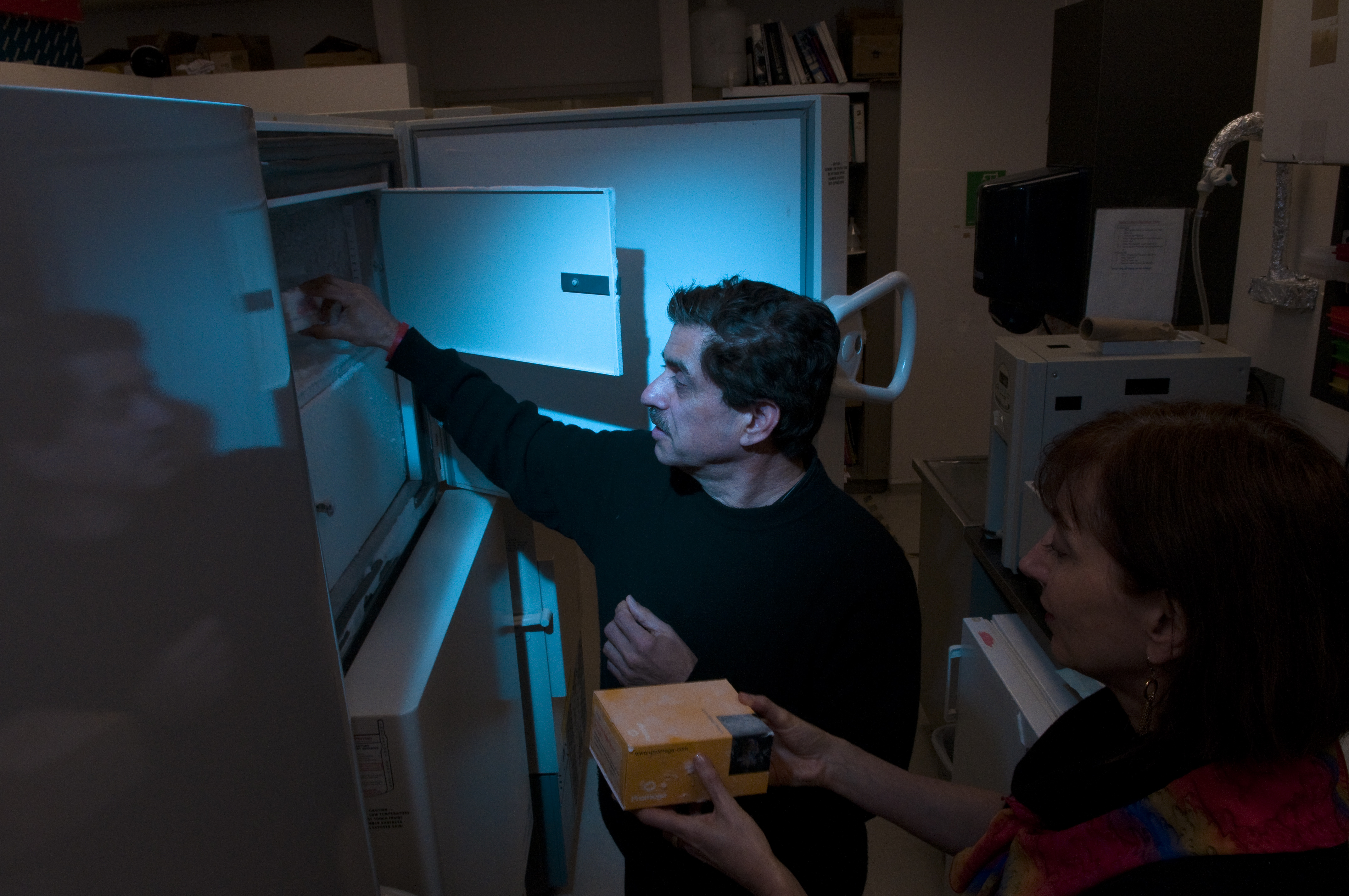Sunnybrook Molecular Biologists Get Funds for Cancer Research
By Jim Oldfield
The Canadian Institutes of Health Research has awarded grants to two cancer researchers at Sunnybrook Research Institute (SRI).
Dr. Jorge Filmus will receive $614,115 over five years to study proteins called glypicans, which can drive cancer growth. Dr. Arun Seth will get $340,026 over three years to investigate a protein that suppresses breast tumours.
Both researchers are senior scientists in SRI’s discipline of molecular and cellular biology and professors at the University of Toronto.
A Protein with Potential to Suppress Breast Cancer
Seth and his lab will investigate the treatment potential of the protein IGFBP7. They’ve developed an effective mouse model of breast cancer for the study that closely resembles the metastatic breast cancer seen in humans; it develops from primary breast tumour tissue, not cell lines, and spreads to bone and other organs about 80% of the time. Using this model, the researchers will inject the protein directly into tumours or administer it systemically in mice, to see if the cancer slows down.
“It’s potentially therapeutic,” said Seth. “That’s one reason they liked the grant, I think—it has a true translational aspect.”
Seth led the group at the National Institutes of Health in the U.S. that first isolated the IGFBP7 gene from breast cancer cells nearly 20 years ago. Researchers didn’t know then if the gene promoted or suppressed cancer tumours, but by the late 1990s, Seth’s lab had found the gene was missing in about one-half of the breast tumours they analyzed.
Recent research on IGFBP7’s role in skin and prostate cancer by U.S. researchers spurred Seth’s team to reexamine the gene in breast cancer. They put IGFBP7 into breast cancer cells in biochemical studies and found the cells’ growth and movement were curbed, slowing the spread of cancer. “The protein looks promising as an effective breast tumour therapy,” said Seth.
Inhibiting a Cancer-Promoting Protein
Filmus will look at a protein that encourages cell growth—glypican-5. Filmus’s lab recently discovered that glypican-5 stimulates the growth of a rare soft-tissue sarcoma called rhabdomyosarcoma, a malignant cancer that starts in muscle cells and invades connective tissues, mainly in infants, children and adolescents.
“It’s a disease we know very little about, particularly [with respect to] its molecular mechanisms,” said Filmus. “Glypican-5 offers one of the few opportunities to develop a targeted therapy, where instead of using a drug that will attack tumour cells but is also toxic for normal cells, we inhibit a particular protein that promotes the cancer.”
A targeted therapy would be a boon to the typically young patients with the disease, whose treatments are often limited by the delicate location of the tumours. Common disease sites include the head and neck (near the eyes and spine), and urinary and reproductive organs. After treatment, which almost always includes surgery and chemotherapy, the five-year survival rate is about 50%. Glypican-5, Filmus’s team and other labs have found, is overexpressed in all cases of this disease, auguring well for development of a more focused therapy.
Glypicans are a family of proteins implicated in various types of cancer. In 2003, Filmus’s lab made the breakthrough discovery that glypican-3 was an effective biomarker for the early detection of primary liver cancer. That discovery is now being developed commercially, with the aim of designing a quick and inexpensive blood test. Primary liver cancer, or hepatocellular carcinoma, is the fifth most common cancer in the world. More than 500,000 people worldwide are diagnosed with it each year.



